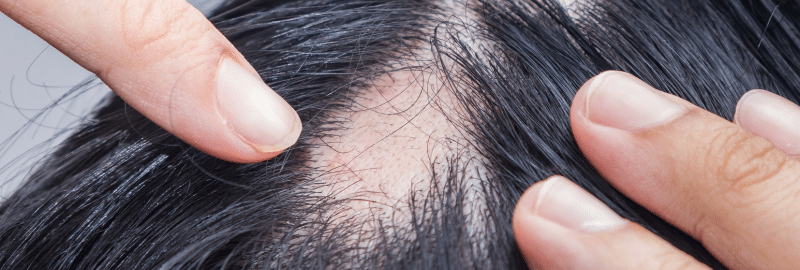Alopecia areata, a condition that causes unpredictable hair loss, affects millions of people worldwide. While it can be distressing, the good news is that there are effective ways to manage and even reverse this condition. At the Tower Dermatology, we offer advanced treatments to help you regain your hair and confidence. Here’s what you need to know about reversing alopecia areata.
Understanding Alopecia Areata
Alopecia areata is an autoimmune disorder where the body’s immune system mistakenly attacks hair follicles, leading to hair loss in small, round patches. In more severe cases, it can progress to alopecia totalis (complete scalp hair loss) or alopecia universalis (loss of all body hair). While the exact cause of this autoimmune response isn’t fully understood, genetics and environmental factors are believed to play a role.
Hair loss from alopecia areata is unpredictable. In some cases, hair regrows on its own, while in others, it may require treatment.
Can Alopecia Areata Be Reversed?
The short answer is yes, alopecia areata can be reversed in many cases. While there is no permanent cure, several treatments can help stimulate hair regrowth and control symptoms. These treatments aim to calm the immune system and encourage the hair follicles to start producing hair again.
Here are some of the most effective options available at Tower Dermatology:
1. Corticosteroid Injections
One of the most common treatments for reversing alopecia areata is corticosteroid injections. These are injected directly into the areas of hair loss to reduce inflammation and suppress the immune system’s attack on the hair follicles. Many patients see noticeable regrowth within a few weeks of starting treatment.
2. Topical Treatments
For patients who prefer non-invasive options, topical treatments can also be highly effective. Prescription-strength corticosteroid creams, minoxidil, or anthralin are commonly used to promote hair regrowth. These treatments are applied directly to the scalp and can take a few months to show results. Patience and consistency are key when using topical therapies.
3. Oral Medications
In more severe cases, oral medications such as immunosuppressants or JAK inhibitors may be recommended. These medications work by calming the immune system, which helps stop the body from attacking the hair follicles. JAK inhibitors, in particular, have shown promise in recent studies for promoting significant hair regrowth in patients with alopecia areata.
4. Advanced Hair Stimulation Therapies
At Dr. Mekelburg’s office, we offer innovative, non-surgical treatments designed to stimulate hair growth naturally. These therapies harness the body’s regenerative properties to encourage hair follicle activity and promote healthy regrowth. After a simple process to isolate essential growth factors, these are applied to the scalp to help boost hair growth. This option is popular for its effectiveness and minimal downtime, making it an appealing solution for those looking for a natural approach to hair restoration.
5. Lifestyle and Stress Management
While medical treatments are crucial, addressing lifestyle factors that can trigger or worsen alopecia areata is equally important. Stress, in particular, is known to exacerbate autoimmune conditions. Incorporating stress-reducing activities like yoga, meditation, and exercise into your routine can support your treatment and improve overall outcomes.
When to Seek Treatment
If you’ve noticed sudden or patchy hair loss, it’s important to seek treatment as soon as possible. Early intervention can make a big difference in reversing hair loss and preventing further progression of alopecia areata. At our office, Dr. Mekelburg and his team will work with you to create a customized treatment plan that fits your needs and helps you achieve the best possible results.



